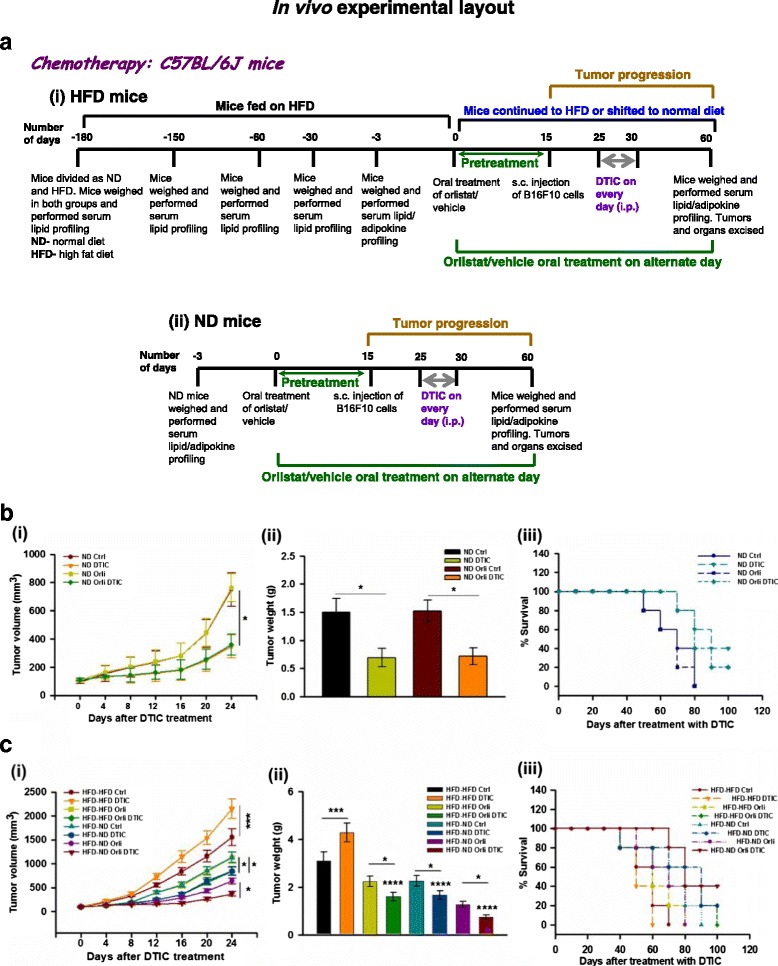Fig. 1.

Diet-induced obesity impairs the outcome of DTIC therapy in melanoma which is improved upon employing weight control interventions. a Impact of diet-induced obesity on the outcome of DTIC therapy in melanoma isografted HFD C57BL/6J mice (i). Effect of treatment of orlistat, at antiobesity dose (10 mg/kg, oral), on the outcome of DTIC therapy in melanoma isografted ND C57BL/6J mice (ii). b ND male C57BL/6J mice were divided into two major groups. One group was orally treated with orlistat (10 mg/kg), and the other group was treated with vehicle control on every alternate day for 8 weeks. Both the groups of mice (N= 11 per each group) were injected with B16F10 cells (2 × 105 cells/mouse in 100 μl PBS). After tumor formation, vehicle or DTIC treatment was given as per the experimental layout shown in Fig. 1. (i) Tumor volume, (ii) tumor weight, and (iii) survival of tumor-bearing mice (N = 5 mice per group). c HFD male C57BL/6J mice were divided into two major groups. One group was continuously fed with HFD, whereas the other group was shifted from HFD to ND. Mice from both the groups were orally treated with orlistat (10 mg/kg) or vehicle control on every alternate day for 8 weeks. All the groups of mice (N = 11 per each group) were injected with B16F10 cells (2 × 105 cells/mouse in 100 μl PBS). After tumor formation, vehicle or DTIC treatment was given as per the experimental layout shown in Fig. 1. (i) Tumor volume, (ii) tumor weight, and (iii) survival of tumor-bearing mice (N = 5 mice per group). The results are given as means ± standard deviation; *p < 0.05, **p < 0.01, ***p < 0.001, and ****p < 0.0001 denote significant differences between the groups; NS non-significant
